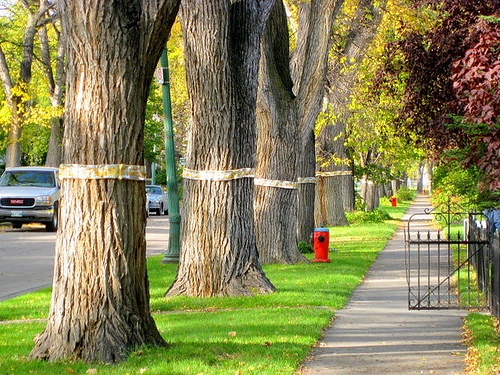Graduate Colloquium: "Planting the Livable City: Initial Assessment of a Science-Practice Gap in Contemporary Urban Greening"
Event

Please join us for the next Urban Studies Graduate Student colloquium, with coffee, croissants and conversation on Tuesday March 19, 9:30-11am, in the Office of the Institute of Urban Research, Meyerson Hall G-12. The series provides a way for graduate students who are or have been a part of the Urban Studies Certificate program to come together to share their work.
Author: Theodore Eisenman, City & Regional Planning
Discussant: Dr. Ann Greene, History & Sociology of Science
Abstract:
Municipalities in the United States and around the world are showing substantial interest in urban greening, defined here as the introduction or conservation of vegetation within the jurisdictional limit of cities. Underlying this bloom of activity is an appreciation for ecosystem services, which may generate human health and well-being (HHWB) benefits. Yet, many of the purported benefits of municipal greening are poorly supported by empirical evidence, suggesting that there may be a science-practice gap. To assess this, I summarized nearly 400 peer-reviewed articles on the HHWB benefits of urban greenery. Emphasizing public health literature, this review shows amongst other things that current research emphasizes the psychosocial benefits of nature contact. As a follow-up, I am comparing these findings with public documentation of urban tree planting programs and conducting a survey of more than 30 leaders of urban forestry organizations. This inquiry may have implications for the research, practice, and funding of municipal greening. For example, nonmaterial cultural values (including psychosocial outcomes) have received little attention in the growing body of ecosystem services research, supporting arguments that ecosystem services do not merely reflect an objective biophysical reality, but must also be understood and studied as a social practice. This assumes heightened significance in light of global urbanization, and the dawning recognition that humans have never spent so little time in contact with nature – the consequences of which are unknown.
